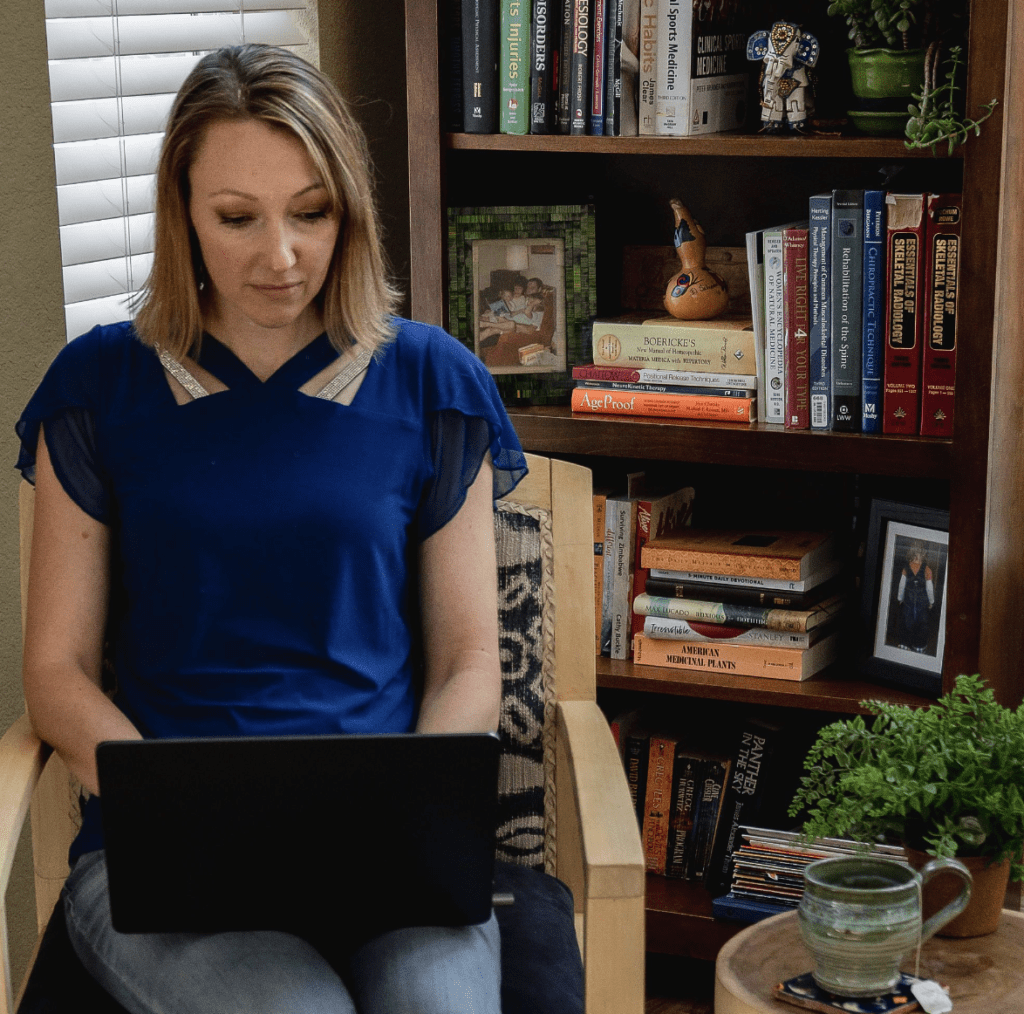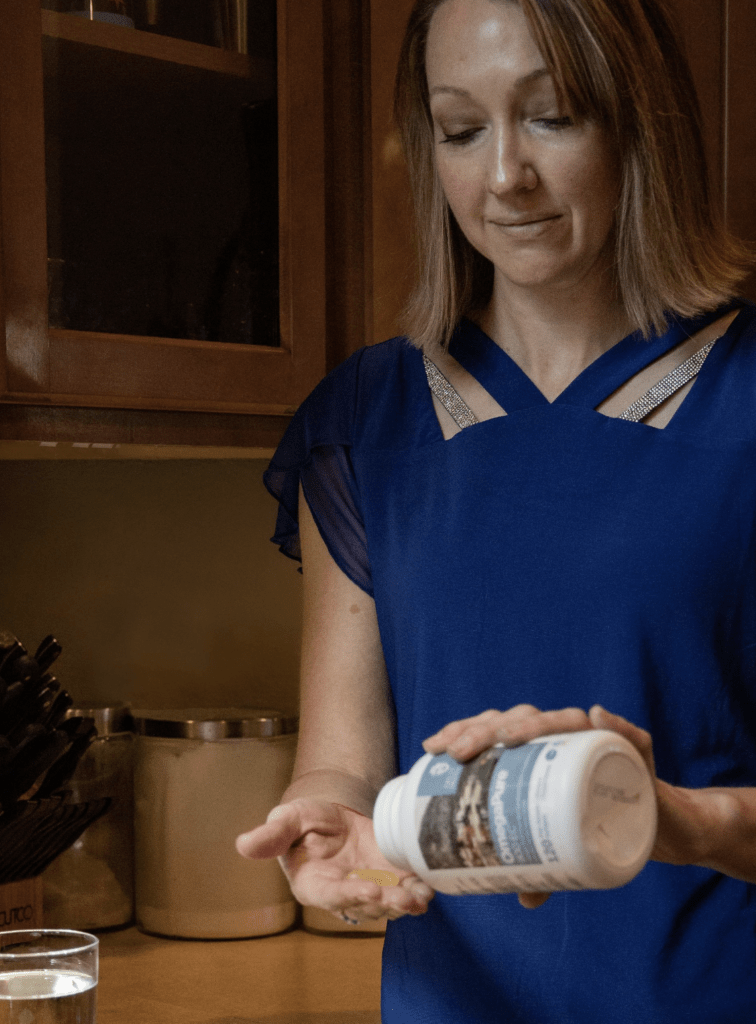New to Ramsay Hunt Syndrome? Start here.
About this Condition
If you’ve been recently diagnosed with RHS, you’re likely to have a million questions running through your head.
Below I’ve answered the most frequently asked questions based upon my research, personal experience and from talking to others with RHS. If you’d like more in depth answers to each question, you can purchase my ebook. Or, for personal support from a doctor who has been right where you are, I invite you to schedule an online appointment and I’d be honored to help coach you through your journey. To schedule a Telehealth appointment, please email me at drchrisillman@gmail.com and I will get back with you promptly to set up a time.
What is Ramsay Hunt Syndrome?
Ramsay Hunt Syndrome is an outbreak of shingles in and around the ear, face and mouth. It is characterized by a painful rash, hearing changes, vertigo and often facial paralysis on one half of the face. A person may have some or all of these symptoms.
Why did I get it?
Shingles is a reactivation of the same virus that causes chicken pox called the Varicella Zoster virus. Once infected with this virus, it lays dormant in the nervous system, often for decades. The virus becomes reactivated when a person’s immune system is lowered and it can no longer keep the virus at bay. Chronic diseases (such as diabetes), cancer, autoimmune diseases, stress and pregnancy can all contribute to a lower functioning immune system allowing shingles to occur.
How long will my face be paralyzed?
This is the golden question that I wish I could answer for everyone. Unfortunately, no one can tell you the answer. Most people start gaining movement in the first 3-6 weeks. How quickly you heal depends on how swiftly you had medical intervention, your overall health and the amount of stress you’re under.
Is RHS different from Bell’s Palsy?
Bell’s Palsy and Ramsay Hunt are similar conditions but are not synonymous. Bell’s Palsy is the acute onset of facial paralysis without any other symptoms and full recovery usually happens in 2-6 weeks. Ramsay Hunt, on the other hand, is typically more severe than Bell’s Palsy as the facial paralysis is usually accompanied by a host of other symptoms such as shingles sores, nerve pain, vertigo, hearing changes and fatigue. Because RHS is more severe, full recovery usually takes months as opposed to weeks like Bell’s Palsy.
There is some debate over how many cases of Bell’s Palsy are being misdiagnosed and are actually cases of Ramsay Hunt but without the presence of the shingles sores. Both conditions are treated the same way medically with antivirals and steroids.
First Steps for new RHS Warriors
What do I do now?
First, take a deep breath. I know this is probably a scary time for you. You have just had your life turned upside down and nothing about life is normal right now. I promise you, you will get through this. You will come out the other side and it might actually be a blessing in disguise. In the meantime, keep breathing. You will be okay!
Now, the next step is you need to make sure you have at least one person to be your person, your caregiver through the next few weeks. Hopefully if you’re in a relationship, this person is your significant other. If not, reach out to friends, family members, teammates, whoever. You need at least one person to lean on through this. My person was (and still is) my husband, Drew. If your caregiver needs some support, too, or would like to gain more understanding about what you’re dealing with, my husband wrote a chapter of the book (hyperlink to book page) specifically for the caregivers in our lives.
What supplies do I need?
- Eye drops (preservative free)
- Eye ointment (not gel)
- Skin tape
- Cotton pads
- Nosy cups or squeeze water bottles
- Jade roller
- Kinesio Tape
- sunglasses
- eyepatch (optional)
What doctors should I be seeing?
This depends on your symptoms and if you have any specialists in your area familiar with Ramsay Hunt. It is good to have your primary care doctor, an ophthalmologist and an ENT (ear, nose and throat) doctor monitoring you. You may also choose to include an audiologist if hearing loss is a symptom. I am also a strong proponent of seeing a chiropractor, a physical therapist (who specializes in vestibular disorders) and an acupuncturist while in recovery.
About your healing journey
How do I know if my nerves are healing?
The first indication that the facial nerve is beginning to heal is the presence of tingling or electrical shock sensations in the face. They are usually quick sensations but can happen several times a day when healing is in full swing. The next most obvious (and exciting) sign is the presence of a little twitch of movement when a muscle is actively trying to be used. This usually happens either at the corner of the mouth when trying to smile or in the eyelid when trying to blink. Twitches slowly lead to more and more movement of the paralyzed muscles.
Will I have permanent effects from RHS?
This varies from person to person depending on the health of the person prior to getting RHS, the severity of symptoms, how soon medications were taken and how quickly the body was able to recover. If medical treatment was timely, it is possible for someone to recover about 90%, meaning there is a little bit of residual damage. Many people, however, do have minor to moderate effects such as facial weakness, abnormal facial movement, bouts of vertigo, hearing issues or chronic fatigue. Taking care of yourself as well as possible during RHS and afterward will help lessen RHS’s effect on your life.
Is RHS something I’ll have for the rest of my life?
Yes and no. A syndrome simply refers to a group of symptoms that commonly occur together, not how long the symptoms last. Many people who have suffered from RHS but have a high degree of recovery from it refer to themselves as having had Ramsay Hunt Syndrome. On the other hand, those who suffer long term effects from it might say they have Ramsay Hunt Syndrome.


